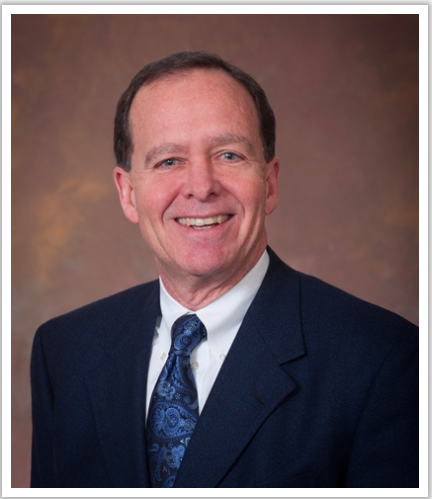Manchester Township consults attorney on city question

The Manchester Township board held a legal meeting, Tuesday, August 13, an hour before its regularly scheduled board meeting. Supervisor Gene DeRossett introduced William Fahey, an attorney from Fahey, Schultz, Burzych, and Rhodes out of Okemos, who specializes in municipal law, and has 40 years of experience under his belt. Fahey gave a presentation and answered questions on Manchester Village’s investigation into becoming a city. All Township board members were present.
Near the end of June, the Village of Manchester’s Citizen’s Advisory Committee released a final report recommending the Village become a home rule city. Fahey felt the report was optimistic about how much things would cost in the end. He stated, “Although a lot of it was accurate, quite a bit of it reflects the world through rose colored glasses.”
He elaborated that that he thought the amount budgeted in for tax assessments was too low and that although they budgeted for voting machines, they did not budget for future maintenance or replacement cost down the road. He also noted that the committee had only estimated for one election per year and it could be the case that there are more than one a year. On the very minor potential reduction in taxes for Village residents the committee calculated, Fahey stated that this has never happened before. He said, “No village has ever reduced its taxes by becoming city. That’s the truth.”
One of the selling points on becoming a city would be getting rid of duplication of services. Because the village is part of the township, village residents support two boards, two treasurers, two clerks, and two planning commissions. Fahey argued that although the village residents won’t be financially supporting the duplicated services anymore, if the village became a city, duplication of services would still exist and in fact the village would be adding services that already exist in the township, like a tax assessor position and election workers.
Interestingly, Fahey also argued with the committee’s analysis that the village becoming a city would result in a net loss financially to the township. While Township revenues go down, township costs go down as well. He stated that it is not always a loss; sometimes it is a net benefit to the township, but added that it’s probably too soon to analyze.
He gave a more detailed explanation of the division of assets that would have to take place if the village becomes a city. The village has a claim to a percentage of all of the property the township owns within the village limits (excluding the Fire Department’s property). Although this could result in the sale of the Manchester Township Hall, it doesn’t have to. Fahey stated, “When I saw the beautiful building you have here, I almost cried at the thought of having to sell that.” He also pointed out that while the Village only has claim to their percentage of SOME of the Townships assets, they have a responsibility for their percentage of ALL of the Townships debts. He stated that for this reason he has never seen a township have to pay out to a new city. He also mentioned that if the Township had money sitting in a bank account that the village had a claim to, they could take that money and use it to buy property outside of the village; then if the village became a city, they would not have claim to that property.
Fahey suggested an alternative path, “Village-Township consolidation”--dissolving the Village government and letting the Township take over all of the unique services the village currently manages. He explained that this would resolve the issue of duplicative government layers and would lower taxes. He also acknowledged that although this has been tried, it has never been successfully done.
The board asked Fahey many questions including how to go about restructuring the Fire Department into a Fire Authority, a parallel issue to the city issue. He explained that if the village became a city, how to deal with the current fire operating millage would need to be negotiated. He stressed that the township needs to make sure its voters are well-educated.
One new piece of information that came out Tuesday night was that if the State Boundary Commission redraws the boundary line and adds Township property to the potential city property, any non-village residents who would become city residents get to vote in the election on the cityhood issue. He also stated that in Chelsea, the township and village had worked out an agreement before submitting their survey to the state boundary commission that if the boundary commission did not stick to the current boundaries, the village would withdraw from the process of becoming a city.
The township board confirmed with Fahey that if the village became a city, they would be able to stay in their current office and they would be able to store their records within the city limits.
Supervisor DeRossett, on the topic of the current strained relationship between the village and the township asked, “Will this acrimony result in the downturn of property value?” Fahey answered that there is no empirical analysis to support it but he has observed that investors usually avoid communities in disputes like this.
Trustee Ron Milkey brought up the road maintenance millage which is paid for by all township residents (including village residents) but can’t be spent on village streets and instead has to be spent on township roads outside village limits. The road millage was something discussed during the Village Council’s Question and Answer Session as village residents subsidizing the maintenance of roads they don’t live on. Fahey told the board that “if it is a chafing point it can be offset to benefit the village.” Whether it is actually a chafing point for Village residents is up for debate, though, as village residents routinely vote in support of the road millage at a higher percentage than the non-village Township residents, with 74.27% village residents voting in support as compared to 66.22% of non-village Township residents during the last road millage election in 2014. The road millage is up for renewal this November.
In the end, Fahey described the possibility of the village becoming a city and leaving the township as a kind of “divorce.” He noted that he had, as a lawyer, advised on several actual divorces and that they were never pretty affairs.








You must be logged in to post a comment Login